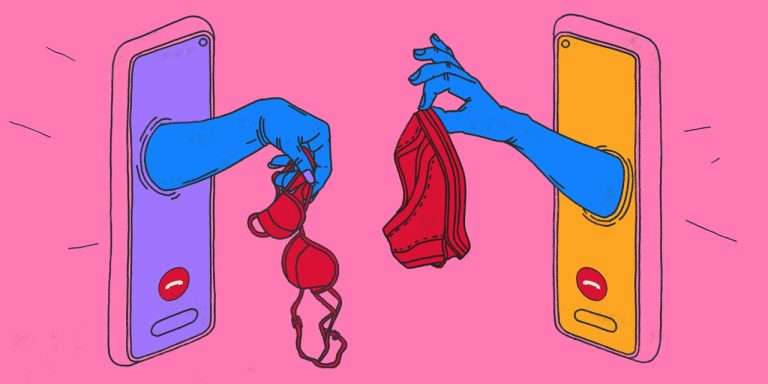
Sharing your feelings, instead of bottling them up and developing your own bad-faith narratives about what might be going on, can head off unnecessary arguments. “When people don’t find a way to communicate that they’re feeling insecure, they tend to blame their partner instead,” Dr. Hoffman says. “It becomes, ‘You’re avoiding me,’ or ‘You’re not answering my calls,’ instead of identifying what the real issue is.”
It’s your partner’s job to help you figure out what will make you feel reassured (up to a reasonable point—more on that below). “One of the most important questions in any relationship is, ‘When I need you, are you able to respond in a way that says you understand me, that you care about me?’” DeGeare says. You might require deeper conversations or more sexual connection going forward in order to feel secure, for example. Words of affirmation from your partner, such as “you’re the only one that I want to be with,” can help, says DeGeare, who also suggests repeating mantras to yourself that reinforce those feelings of trust and security (“We’re in this relationship because we want to be”).
Make sure you’re not overcompromising.
Sacrificing your own needs can happen in any relationship, but Dr. Hoffman sees this play out much faster with long-distance couples because people are eager to agree to whatever it might take to make it work. “You’ll start to say stuff like, ‘I said I needed to talk before bed—but it’s okay that they don’t call me back at night,’” she says.
Again, the ability to compromise is a relationship green flag, but there’s a difference between meeting the other person halfway and giving up on the things you value entirely. Ceding your needs little by little can bring on anxiety symptoms like insomnia, tightness in your chest, and intrusive thoughts, Dr. Hoffman says. Left unaddressed, she adds, this anxiety can spur an insatiable need for reassurance that no affirmation or amount of phone calls will satisfy, which in turn leads to tension and arguments.
If you find that the compromises you’ve made have slowly led you to feel physical symptoms of anxiety, or you simply feel more bad feelings than good ones when you’re talking with your significant other or thinking about your relationship, you may need to consider breaking up. There’s no shame in saying, “I love you, but a long-distance relationship isn’t working for me,“ DeGeare says.
Don’t stay just because you made that aforementioned plan.
When one of you has crossed agreed-upon boundaries—cheating, not talking to the other for days on end—that’s obviously a flashing sign that things aren’t working. But DeGeare says she’s seen many LDRs meet a quieter death that both partners are reluctant to acknowledge.
“It’s very easy to drag out a long-distance relationship, especially if you’re not fighting,” she says. Letting a stagnant relationship continue happens within in-person relationships too, of course. But in DeGeare’s experience, it’s much easier to do when you’re not in each other’s faces every day, and you may not have realized how easy it’s become to put the other person out of mind when you’re not on the phone together.